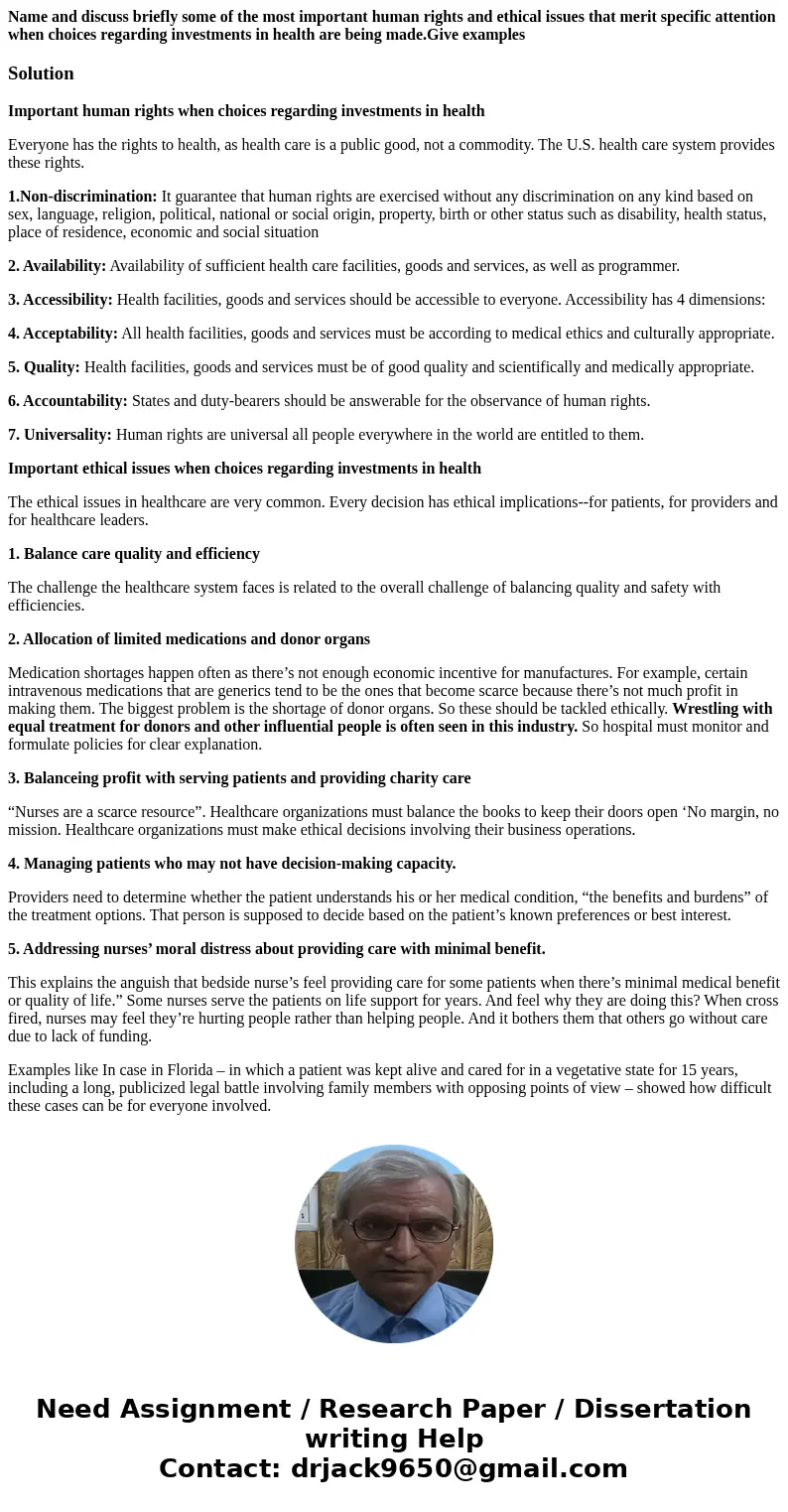Name and discuss briefly some of the most important human ri
Name and discuss briefly some of the most important human rights and ethical issues that merit specific attention when choices regarding investments in health are being made.Give examples
Solution
Important human rights when choices regarding investments in health
Everyone has the rights to health, as health care is a public good, not a commodity. The U.S. health care system provides these rights.
1.Non-discrimination: It guarantee that human rights are exercised without any discrimination on any kind based on sex, language, religion, political, national or social origin, property, birth or other status such as disability, health status, place of residence, economic and social situation
2. Availability: Availability of sufficient health care facilities, goods and services, as well as programmer.
3. Accessibility: Health facilities, goods and services should be accessible to everyone. Accessibility has 4 dimensions:
4. Acceptability: All health facilities, goods and services must be according to medical ethics and culturally appropriate.
5. Quality: Health facilities, goods and services must be of good quality and scientifically and medically appropriate.
6. Accountability: States and duty-bearers should be answerable for the observance of human rights.
7. Universality: Human rights are universal all people everywhere in the world are entitled to them.
Important ethical issues when choices regarding investments in health
The ethical issues in healthcare are very common. Every decision has ethical implications--for patients, for providers and for healthcare leaders.
1. Balance care quality and efficiency
The challenge the healthcare system faces is related to the overall challenge of balancing quality and safety with efficiencies.
2. Allocation of limited medications and donor organs
Medication shortages happen often as there’s not enough economic incentive for manufactures. For example, certain intravenous medications that are generics tend to be the ones that become scarce because there’s not much profit in making them. The biggest problem is the shortage of donor organs. So these should be tackled ethically. Wrestling with equal treatment for donors and other influential people is often seen in this industry. So hospital must monitor and formulate policies for clear explanation.
3. Balanceing profit with serving patients and providing charity care
“Nurses are a scarce resource”. Healthcare organizations must balance the books to keep their doors open ‘No margin, no mission. Healthcare organizations must make ethical decisions involving their business operations.
4. Managing patients who may not have decision-making capacity.
Providers need to determine whether the patient understands his or her medical condition, “the benefits and burdens” of the treatment options. That person is supposed to decide based on the patient’s known preferences or best interest.
5. Addressing nurses’ moral distress about providing care with minimal benefit.
This explains the anguish that bedside nurse’s feel providing care for some patients when there’s minimal medical benefit or quality of life.” Some nurses serve the patients on life support for years. And feel why they are doing this? When cross fired, nurses may feel they’re hurting people rather than helping people. And it bothers them that others go without care due to lack of funding.
Examples like In case in Florida – in which a patient was kept alive and cared for in a vegetative state for 15 years, including a long, publicized legal battle involving family members with opposing points of view – showed how difficult these cases can be for everyone involved.


 Homework Sourse
Homework Sourse